Teresa Mason woke up her husband around midnight October 14, 2009. He didn’t intend to disturb her, but his apparent bad dream did just that. She jostled him. But that “bad dream” turned into a nightmare. Her husband, Bland, wasn’t asleep, and he wasn’t just tossing and turning. He was seizing.
Around 12:10 a.m., his heart went into an unsustainable rhythm. Then stopped.
The Masons moved to Boston from Louisville, Kentucky, to plant a church about a year earlier. At this point, a pre-launch team met twice a week, growing to about 30 people. The earliest days of a plant are the most vulnerable. And Boston isn’t exactly a place where churches flourish.
The failure rate for new churches in Boston, according to the North American Mission Board, for years sat around 90 percent. Overall, only around 115 Southern Baptist churches operate in the Boston area. Of course, a church whose pastor dies, generally speaking, never gets started at all.
But the line between life and death, medically speaking, isn’t always clear.
Teresa Mason maneuvered her husband onto the floor and called 9-1-1. Then, for nine dragging minutes she gave her husband CPR. A Newton County police officer arrived and charged Bland Mason’s chest with a defibrillator. His heart started again.
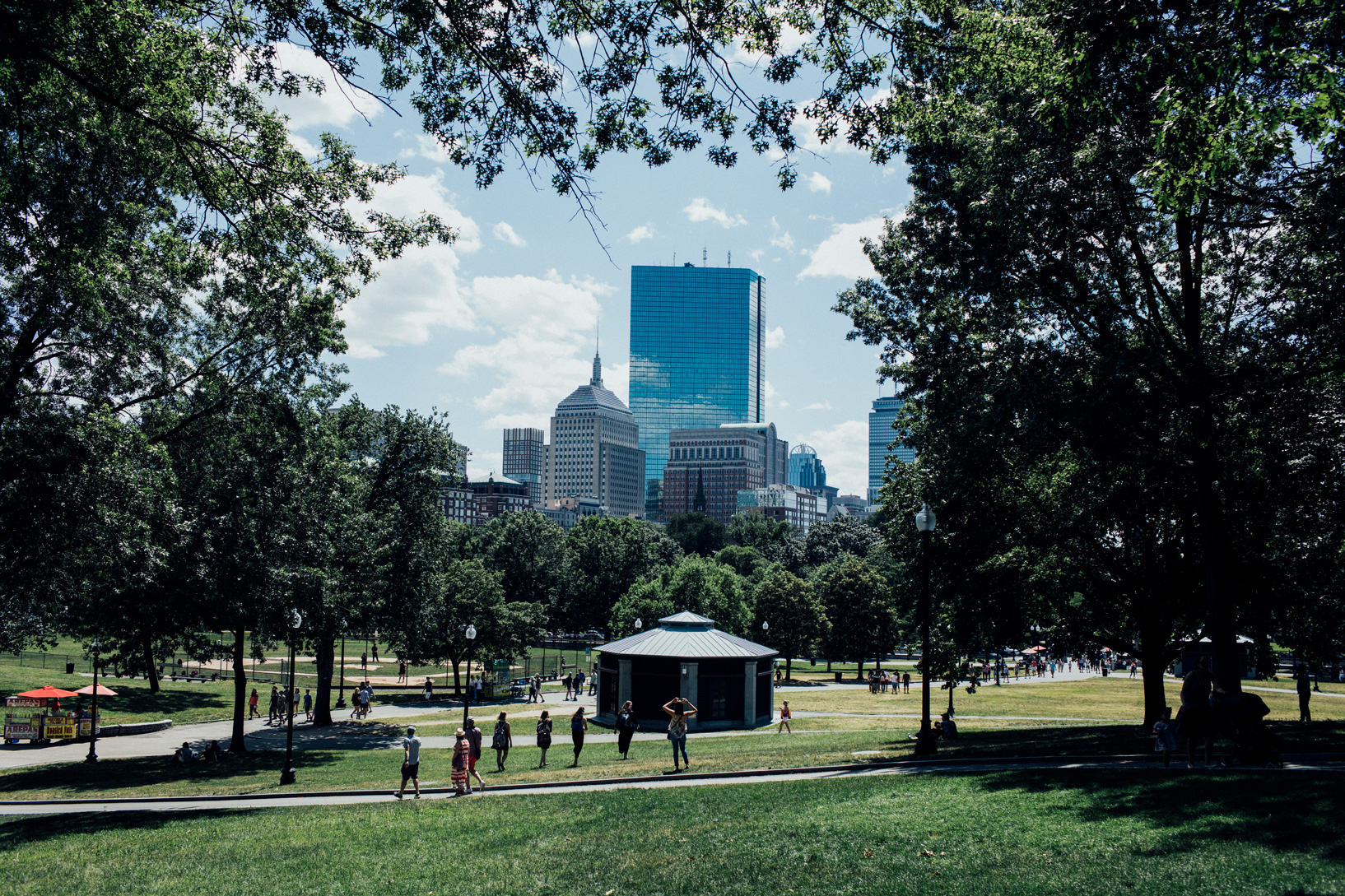
They rushed him to Tufts Medical Center in downtown Boston, where he spent two days in a medical coma and seven more days enduring every imaginable battery of diagnostic tests. A cardiac arrest almost killed Mason, and his effort to start a church in Boston almost died along with it. Almost.
Some people of really bold faith were crying out to God to heal me. It was formative for our church. It formed a community there.
“It had an incredible effect on our church,” Mason said in interview with Southern Seminary Magazine. “We had two community groups, and those groups met [the evening after the heart attack]. Both groups spent the entire time praying for me. Some people of really bold faith were crying out to God to heal me.
“It was formative for our church. It formed a community there.”
“The Athens of America.” “The Cradle of Liberty.” “The Hub of the Universe.” “Beantown.” Whichever nickname you prefer, no city personifies America better than Boston. The story of the nation centers around Boston. The paragons of American education operate in Boston. The most recognizable accent in America comes from Boston. The cultural complexity lends to iconic films set in Boston. Even the sports team that embodies the aspirations of all other teams plays in Boston. And Mason thinks Boston is the most strategic city in the world.
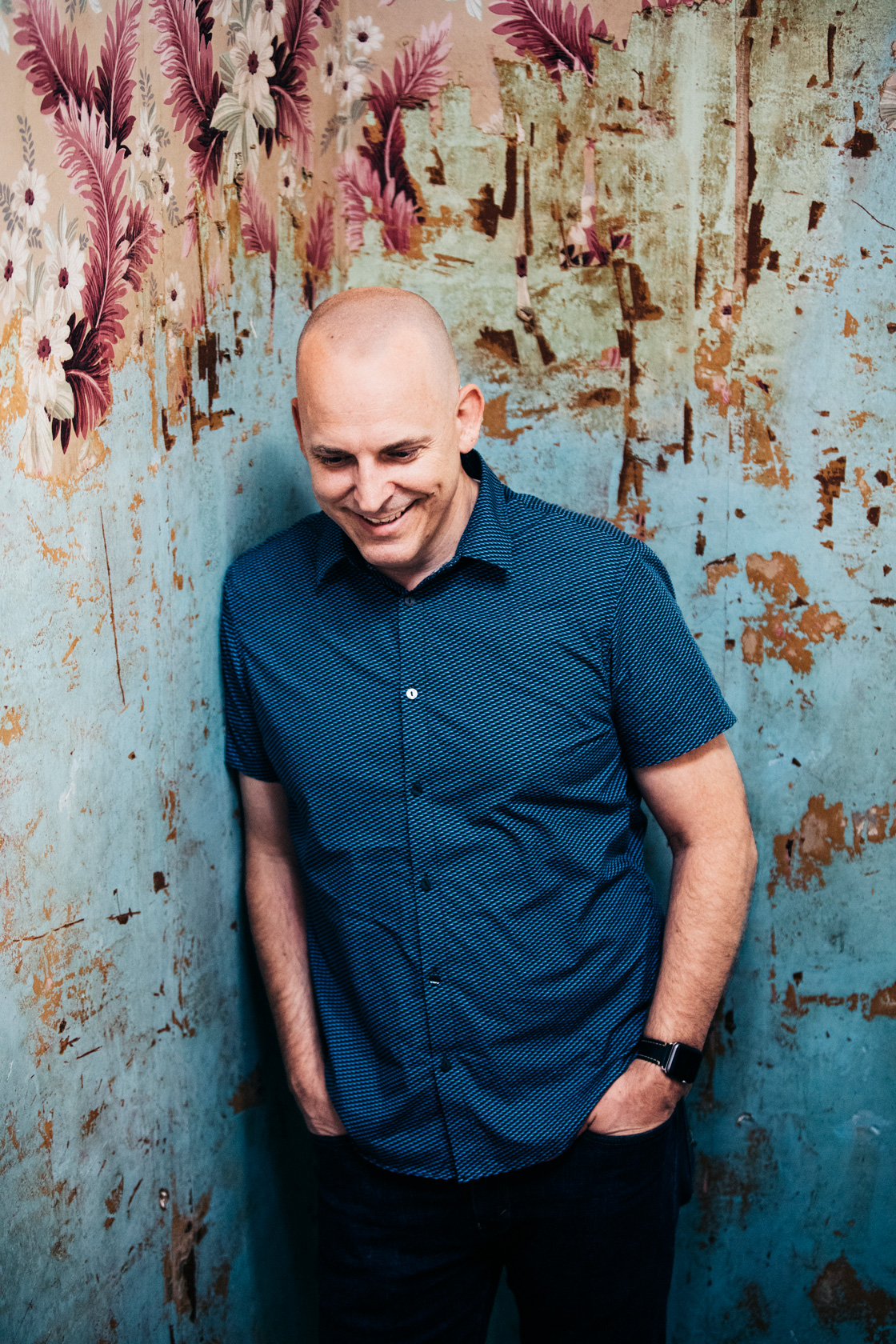
In a ranking called the Global Cities Outlook, which measures cities’ “future potential global influence,” Boston ranks first. The city’s economic, cultural, and educational opportunities attract people by the millions from every imaginable part of the world. But of cities with similar stature, Boston is by far the smallest. That means, Mason argues in a widely read whitepaper published by NAMB, “Boston exerts a higher global influence per person than maybe any other city in the world.” His point is this: Reach Boston with the gospel of Christ, and you’ll reach the rest of the world, too.
The strategy is clear. But it’s not simple.
Religion saturates the history of Boston. That heritage lingers; Mason calls it the “echo of Christianity.” He says most people he runs into already believe in a god in some general sense. But alongside wider, documentable trends toward secularization in coastal, urban areas, Boston’s increasing rejection of organized religion stems from unique circumstances. Shrapnel from the early 2000s pedophilia scandals within the Roman Catholic Church pepper Bostonians perspectives of the church. Mason, whose side gig as a chaplain for the Boston Red Sox exposes him to people from all over the area, talks to former Catholics all the time who now refuse even to enter the doors of their old churches. Locals generally like the idea of God, Mason thinks. Almost none of them, however, are part of an actual church.
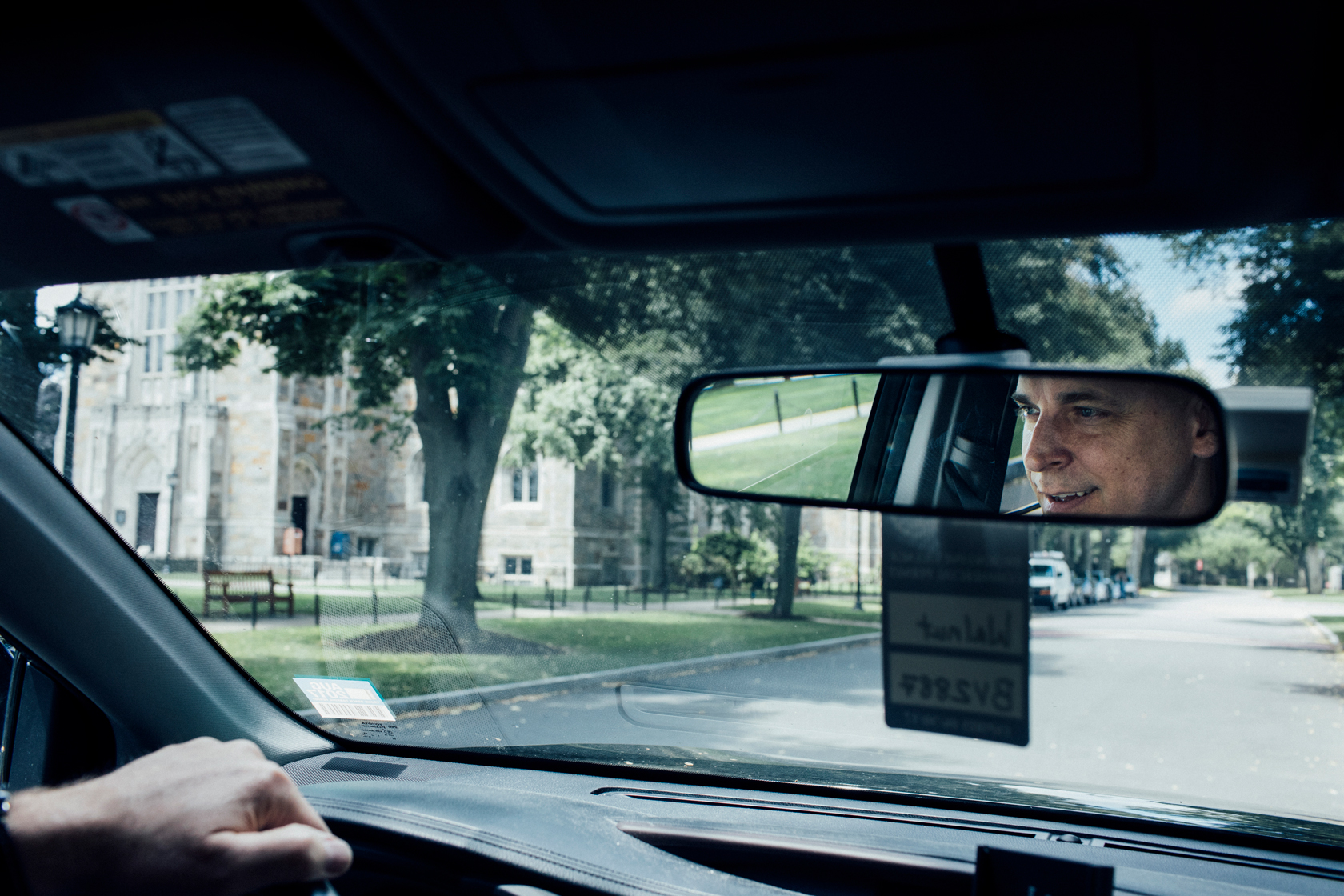
Among the area’s 5.9 million people, only one Southern Baptist church exists for every 39,257 people. Even if you add historic congregations like Park Street Church and growing, millennial-magnet church plants like Mosaic Boston, the city still barely reaches the definition of a reached people group. The American Religious Database Archive identifies the Boston metro area as only 3.2 percent evangelical.
“People here don’t have enough religious knowledge to know if they even believe in the same god,” he said. “You have to start with who God is, and build out from there.”
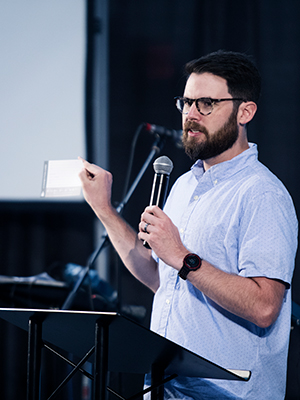
M.Div. student, speaks at
City on a Hill church.
He took a seminar with Thom Rainer, who at the time was dean of the Billy Graham School of Missions, Evangelism and Church Growth. Rainer required students to interview unchurched people around the United States, research that lead to his popular 2008 book, The Unchurched Next Door. Some relatives of Mason’s lived in New England, and he traveled there to interview people about their experiences leaving the church. The eight or ten interviews he conducted introduced him to the people, and spiritual plight of people, in Boston.
“Getting to talk to unchurched people piqued my interest,” Mason said. His work for the course affected him, and it stood out even to Rainer.
“I remember Bland having a strong heart for missions, I remember him being driven to reach people where others might not be focusing,” Rainer, who is now the president of LifeWay Christian Resources, told Southern Seminary Magazine. “I am always encouraged when church leaders and pastors go to areas where there’s a significant presence of people who are not followers of Christ. I’m always encouraged when people like Bland are able to leave the comfort of their own culture and go to another place that, even though it may not be an international mission field, has the same elements of international missions.”
By then, Teresa and Bland Mason claimed a family of five, with children: Jordan, Hannah, and Sarah. Around the same time, Mason read puritan John Winthrop’s famous Boston-based sermon, “A City on a Hill.” He wept reading it. “[Boston is] a far cry from Winthrop’s vision.” Off they went.
About ten minutes southwest of downtown Boston sits Brookline, a wealthy town of about 60,000 people completely surrounded by Boston proper. On the red line, Harvard University is one stop north. At the center of Brookline, Coolidge Corner, an asymmetrical town square, bustles with bookstores, coffee shops, restaurants, and boutiques. Brookline forms a microcosm of Boston’s already-eclectic religious pot.
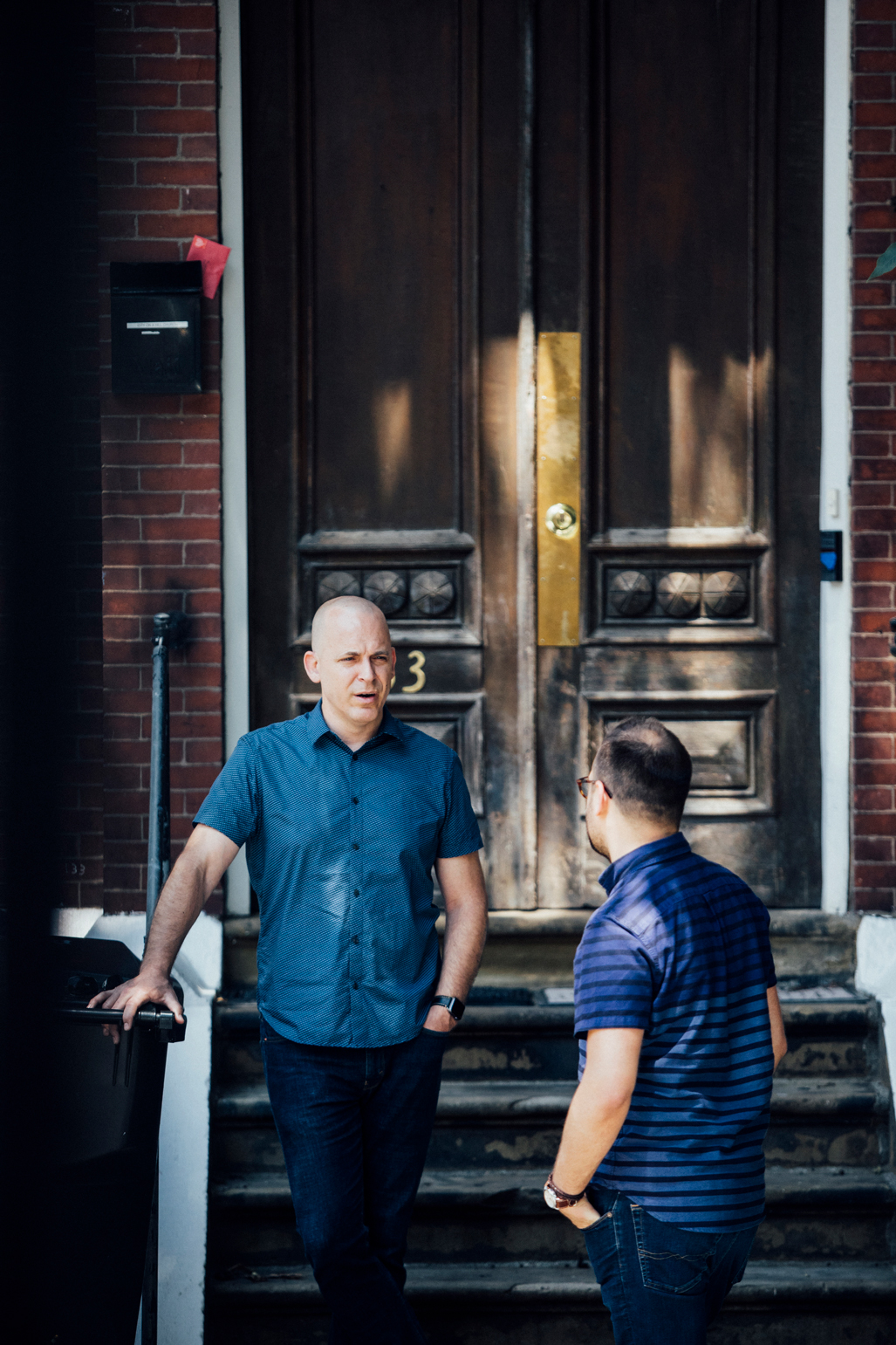
The town represents, according to Mason, the most Jewish neighborhood in the world outside Israel. And the most recent data available shows evangelicals make up three percent of Brookline’s population; in Norfolk County, only 1.5 percent are evangelical.
My ego was all wrapped up in that. … I am not indispensable to the kingdom of God. God could have taken me out and done whatever he wanted to. He lets me be a part of this.
A few blocks from Coolidge Corner, where Beacon and Washington streets intersect, met the people of City on a Hill Church.
The Masons got to Boston in 2008, and he immediately started a church planting residency at an established area church. The church helped Bland start a Sunday night Bible study in Brookline the next year. They began with 10 or 15 people and grew steadily. Then Mason’s heart stopped.
“[The medical crisis is] hard to overestimate,” he said. “I would love to tell you I was planting the church purely out of kingdom motives to see Jesus’ name made big in Boston. But my ego was all wrapped up in that at the same time, wanting my name to be big and wanting success. … I am not indispensable to the kingdom of God. God could have taken me out and done whatever he wanted to.
“He lets me be a part of this.”
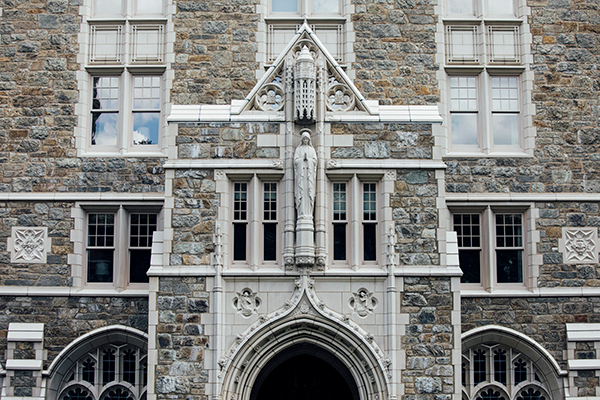
Those small gathering grew to about 60 people, which is when Mason launched a Sunday morning service and moved to their current location in August 2010. Today, City on a Hill Church holds two services per Sunday just to seat all of its members and attendees. And, according to Mason, the community forged by his 2009 cardiac arrest continues to shape the church’s sense of urgency. As a group, Mason’s congregation intends to reach Boston — and the peoples of the world gathered there.
Before COAH — what everyone who’s a part of the church calls it — launched, the members gave $600 to help plant Redemption Hill Church up in Medford, Massachusetts, which is one of about 12 churches they’ve helped fund. In 2012, COAH took on its first church planting resident, and sent him out to plant with 15 percent of the church. Then they sent more people out in 2013. Then more in 2014. And 2015 and 2016. In its eight years of existence, COAH has already planted five churches in and around Boston.
***
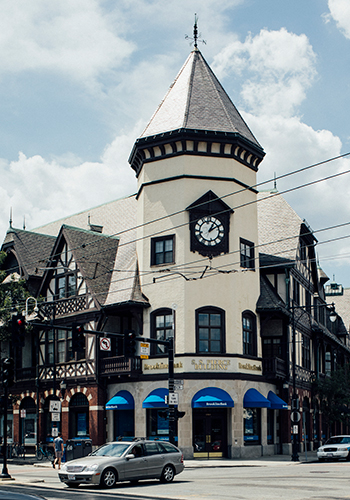
He arranged to meet with Mason the day he was preaching at the seminary. Two years later, Lang graduated and moved to Boston to work alongside Mason at COAH Church.
He initially worked as children’s director, which corresponded to his pastoral work in Louisville, but he quickly became executive pastor. Now, Lang oversees leadership development and community groups, which Mason sees as a central part of COAH’s mission.
“We hear over and over, where non-Christians will visit a community group and say, ‘I really like your friends,’” Mason explained. “That’s how people end up sticking sometimes. They go, ‘This is really different: I’ve never been around people who love each other who aren’t related.’”
Mason points to Francis Schaeffer’s famous idea that the community of the church is the “final great apologetic” for the gospel. Mason thinks reaching a city like Boston requires that exact thing.
“The real strength of our church isn’t the gathering,” Mason said. “It’s the community groups. We’re trying to be family in the city.”
You can feel the energy around COAH church. The people love each other and their church. In other words, they buy into Mason’s vision — which means good news for gospel work in Boston.
Reflecting on Mason’s work, Rainer said: “In many ways, that’s the William Carey model, and Bland seems to be replicating that without leaving the United States.”
This mission requires that kind of energy. Because the line between life and death, spiritually speaking, is clear.
———




